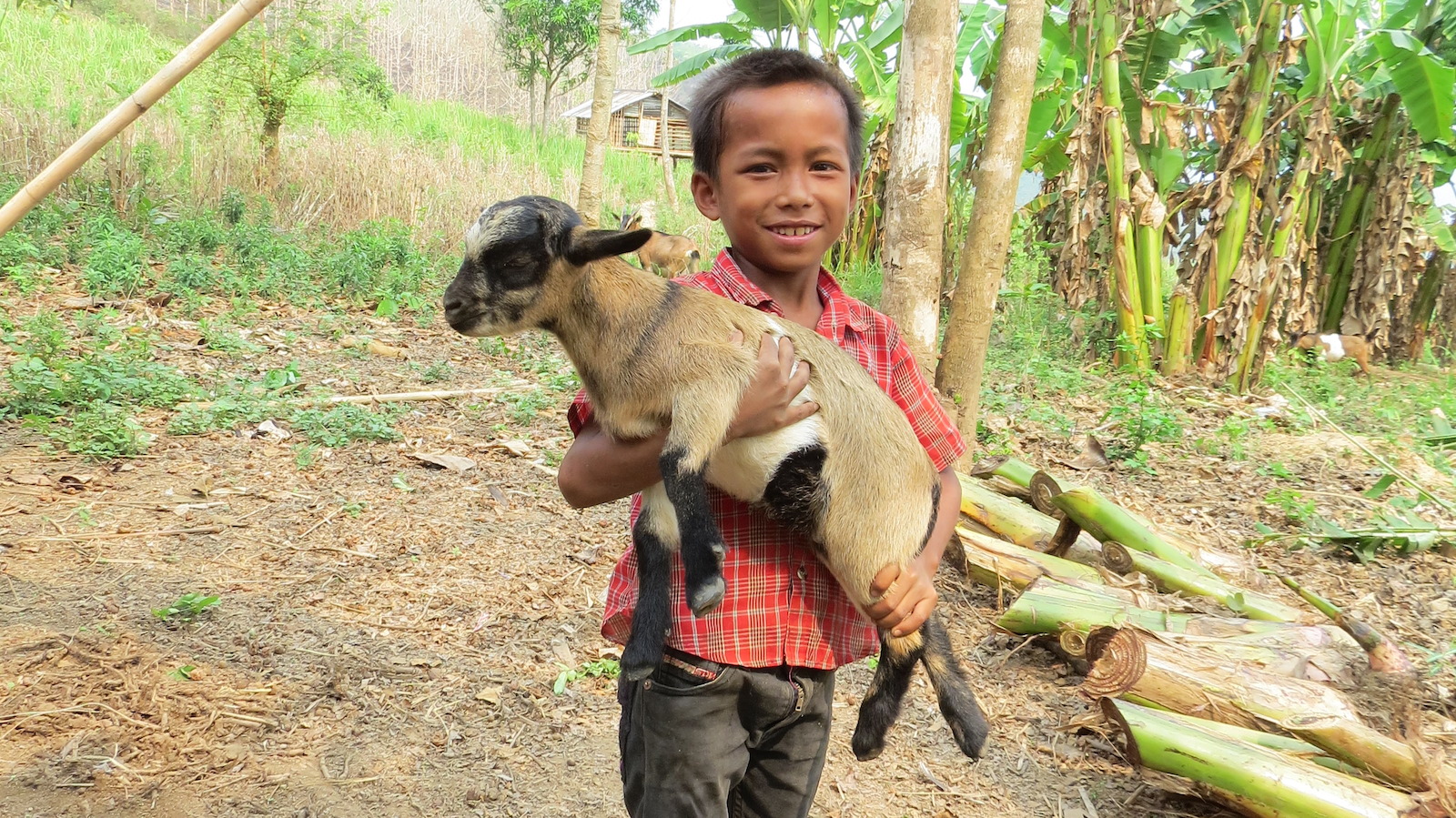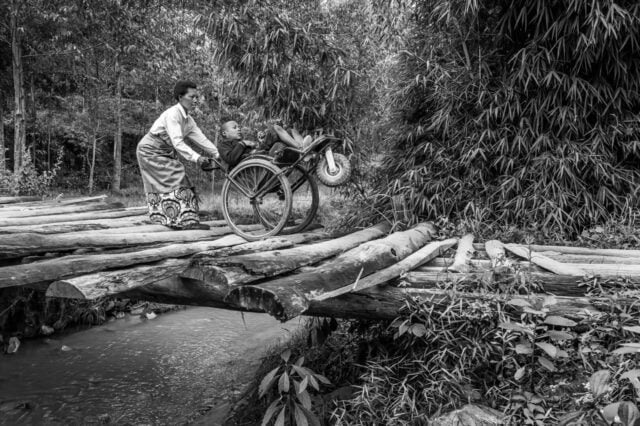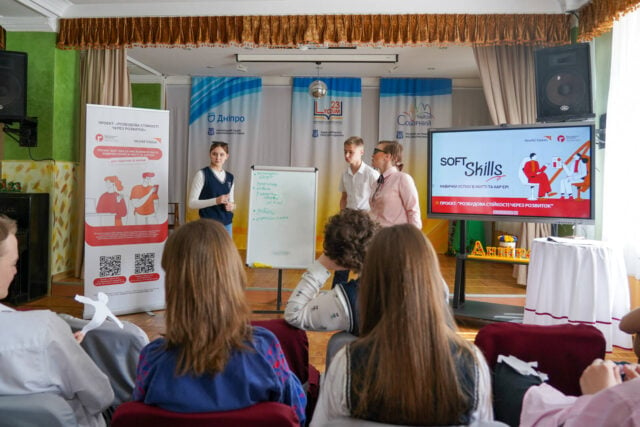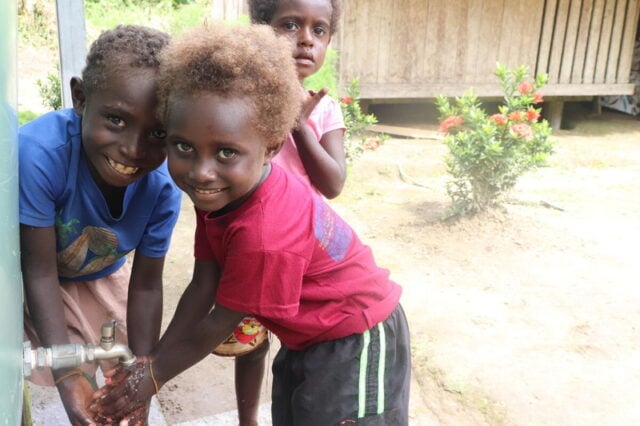In the past, 11-year-old Kham in Laos couldn’t pay attention to the words his teacher was saying. There was always just one thing on the mind of this third-grader — his hunger.
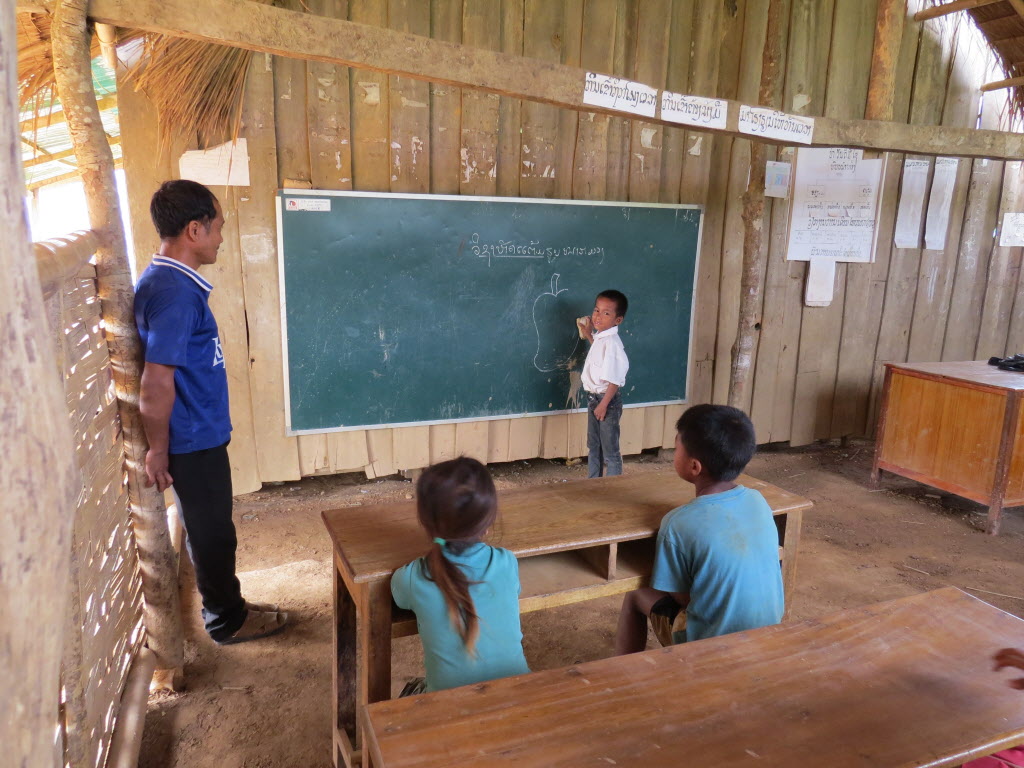
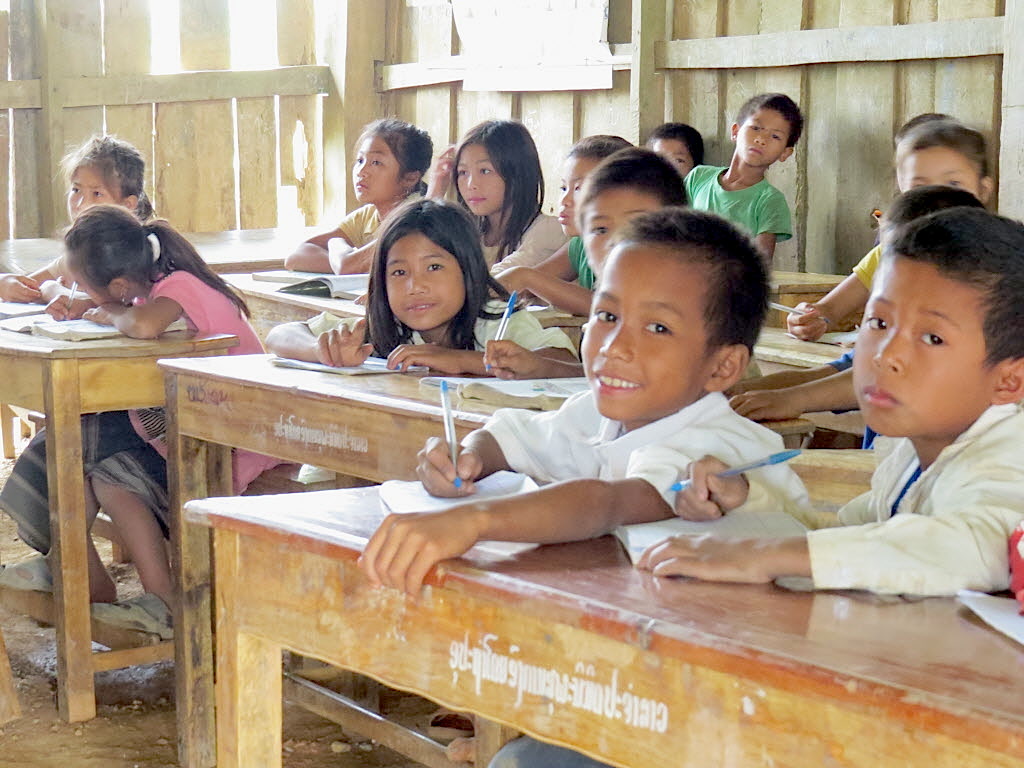
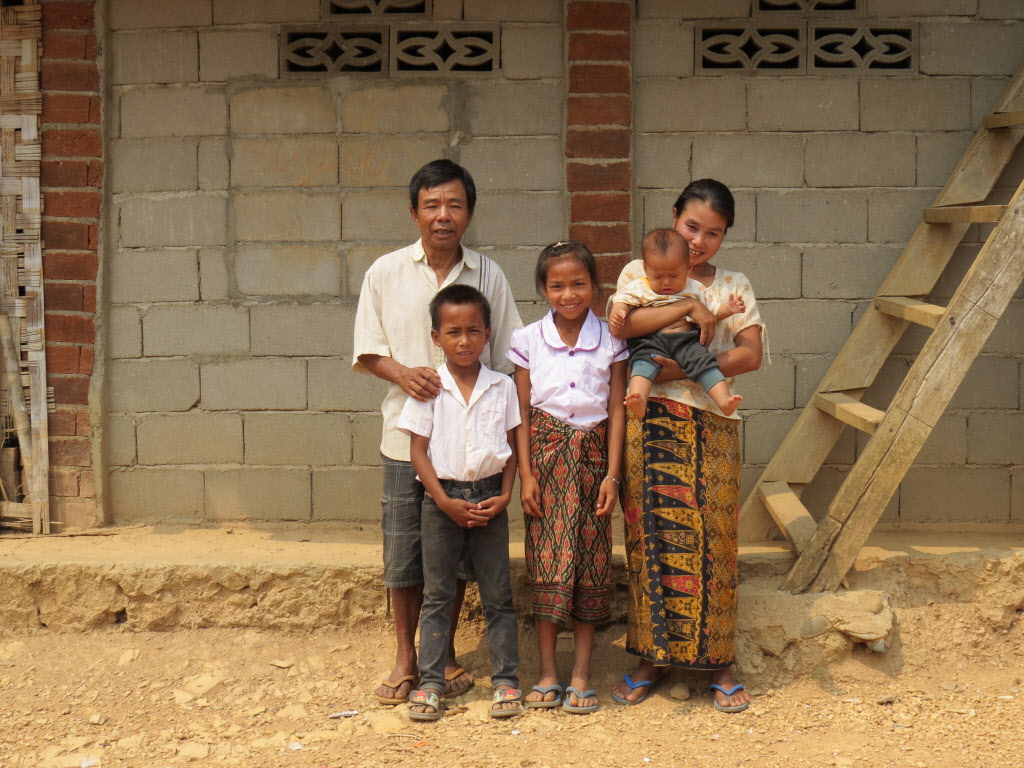
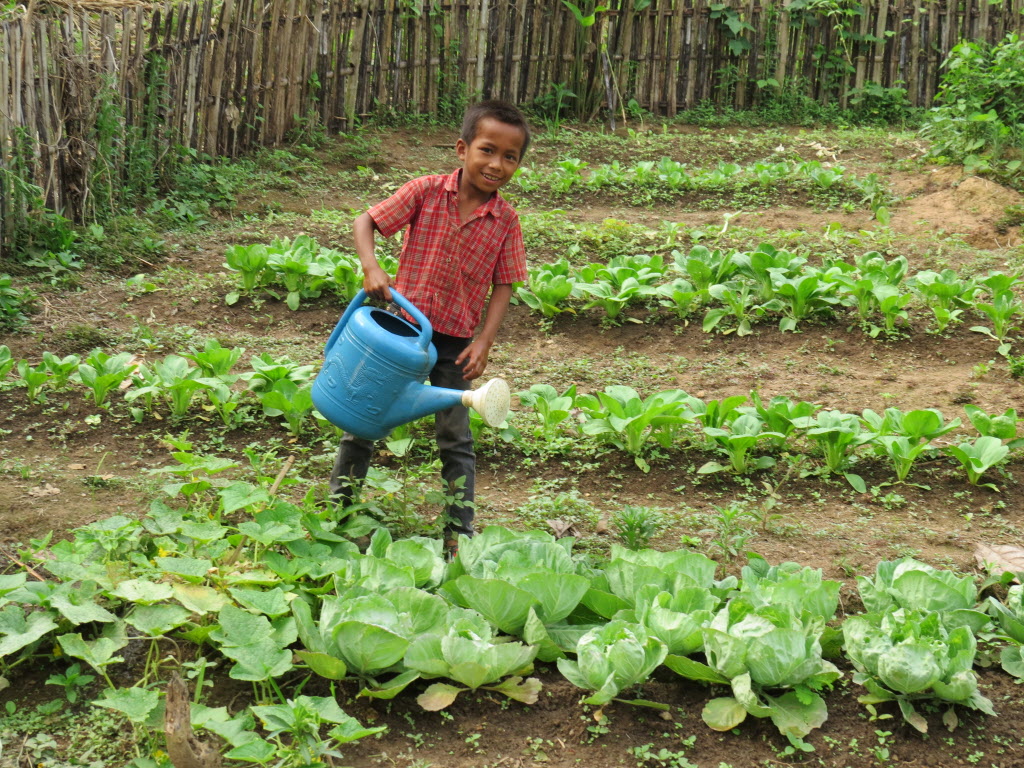
Even at mid-morning, Kham was hungry, and he knew it would only get worse as the day wore on. There was no food at his home, and he knew that most of his classmates faced the same problem.
Kham and his friends would go often looking for food in the forest. If they were really lucky, they would find some bamboo quickly and would be able to return to school for the afternoon sessions.
But on other days, the boys wouldn’t find anything, so they would spent all afternoon looking for food instead of going to school. And they still would often go to bed hungry.
Hungry with dirty clothes
During the rainy season, it was most difficult to find food in the forest. Kham’s family and others would call this period the hungry months. His mother would wake up early to cook a small amount of rice for her children. She knew it wouldn’t be enough for them, but it was all she had. And with another child on the way, she knew she had to ration even what little rice there was.
Kham had only one set of clothes. His mother would only wash clothes on Saturdays, so by the end of the week, they were very dirty. Sometimes he was too embarrassed to go to school because of this.
During this time, Kham’s father had two goats. He planned to sell one of them so that they could buy food for his pregnant wife. But the goat died before it could be sold, marking a huge loss for the family.
Kham’s father started raising goats when Kham was about 8 years old. Nearly half of the goats would die, and the family didn’t know why.
Training and assistance for a better future
But this past year, World Vision staff came to their village and helped to establish an animal fund. World Vision and local government staff trained Kham’s father and other community members in goat raising and vaccination techniques.
Immediately after the training, Kham’s father took a loan from the village animal fund and purchased four goats. With his improved knowledge about goat raising techniques and treatment of common animal diseases, Kham’s father decided to build a shed in the fields near the village.
In the year since receiving the training from World Vision, none of their goats have died. Now Kham’s family has 15 goats, of which they’ve sold four at a price of about $90 each. Kham’s family has used the money to purchase enough rice so that all five members of the family are able to eat three meals per day.
During the past year, the family has also been able to purchase an extra set of clothes for their children, as well as some basic education supplies and some improvements to the family house.
‘I want to be a teacher’
Now, when Kham goes to school, he doesn’t have to listen to his stomach growling all the time. He is able to stay in school during the afternoons rather than trying to find food out in the forest.
“I want to be a teacher in the future, because I want to teach children,” says Kham.
For a boy who once skipped school because he lacked food and clothing, this is an amazing aspiration.
Three ways you can help
- Pray for children’s education: As children here in the United States prepare to return to school, please pray for those worldwide whose education is hindered by hunger or a lack of clothing or clean water. Pray that such obstacles would be removed for children who long to go to school and pursue their dreams.
- Help provide education for a child in need: Education is the key to a future free of poverty, but ironically, poverty itself often keeps children out of school, confining them to a vicious cycle. Your gift will help provide essentials like school uniforms, textbooks, backpacks, school supplies, and more.
- Sponsor a child today: Child sponsorship is the best holistic approach to fighting poverty and removing obstacles to a child’s education. It provides basics like nutritious food, clean water, medical care, safe shelter, and more.
